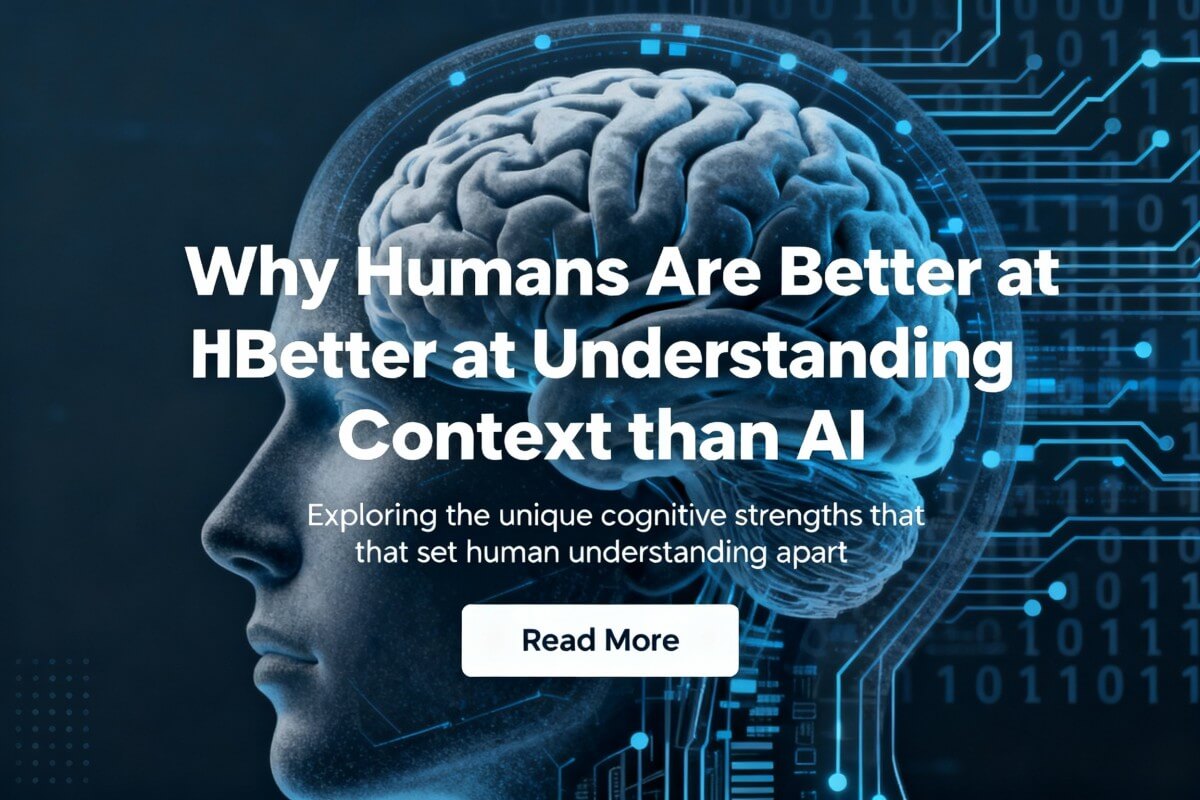Understanding context is one of the most fundamental yet complex capabilities of human intelligence. It allows people to interpret language, emotions, cultural cues, and experiences in a way that shapes meaningful communication and informed decision-making. Despite tremendous advances in artificial intelligence, contextual understanding remains a clear area where human cognition far surpasses AI systems due to the multifaceted nature of human consciousness, emotional depth, and adaptability.
The Nature of Human Contextual Understanding
Humans possess an innate ability to weave together various types of information across sensory experiences, social cues, emotions, and cultural backgrounds. This integration enables people to grasp implicit meanings, irony, sarcasm, and abstract symbolic concepts effortlessly. Rather than relying solely on data, humans use intuition developed through lived experiences, empathy, and morality when interpreting situations. This flexible comprehension helps navigate ambiguity and uncertainty naturally.
Human brains synthesize sensory inputs from sight, sound, touch, and even smell, layering them with emotional responses to form a comprehensive context. Emotions play a critical role in shaping interpretation because they provide clues about intent and social dynamics. Cultural norms and personal histories also color how context is understood, allowing for varied yet meaningful perspectives on the same information.
AI’s Approach and Its Limitations
Artificial intelligence systems function primarily through pattern recognition based on large datasets and algorithms. These machines process structured data rapidly, excel at repetitive tasks, and can identify correlations more quickly than humans. However, AI lacks consciousness, emotions, and real-life experiences—dimensions essential to genuine understanding.
AI models attempt to mimic aspects of natural language and social cognition using techniques like natural language processing (NLP), but these efforts have inherent limits. For example, AI struggles with nuances such as sarcasm, metaphors, and cultural subtext that require emotional intelligence and ethical judgment. Without lived experience or moral reasoning, AI’s interpretation remains surface-level, often failing in ambiguous or novel contexts that do not match its training data.
Why Humans Excel at Contextual Decision-Making
Adaptability and Flexibility
Humans can shift perspectives based on new knowledge or changing environments, adapting their understanding fluidly. This adaptability includes revising opinions, incorporating previously unknown information, and using intuition to fill gaps in reasoning. AI, by contrast, requires explicit retraining or reprogramming to adjust to new contexts or unexpected scenarios.
Emotional and Ethical Intelligence
Humans interpret meaning not just logically but emotionally. Social situations often involve understanding feelings, motives, and ethical implications. Human decision-making integrates these factors holistically, weighing right and wrong within cultural frameworks. AI lacks genuine empathy and cannot navigate ethical dilemmas authentically, making it unsuitable for roles requiring moral judgment.
Handling Ambiguity and Uncertainty
Life and communication often present incomplete or ambiguous information. Humans thrive in these gray areas, using prior knowledge, instinct, and social intuition to infer meaning. In contrast, AI systems depend on clear patterns and can misinterpret or oversimplify ambiguous inputs, leading to errors or misunderstandings.
The Role of Experience and Consciousness
Human contextual understanding is deeply rooted in consciousness—the awareness of self and surroundings—and the accumulation of experiences over a lifetime. This experiential learning is qualitative, emotional, and richly layered. Humans remember past interactions, interpret nuances differently depending on mood or situation, and apply creativity to solve problems innovatively.
AI, however, processes quantitative data devoid of awareness or subjective experience. It simulates understanding through programmed responses but never achieves genuine comprehension or intentionality. While AI can replicate specific cognitive tasks, the absence of consciousness means it cannot originate meaning or insight independently.
Practical Implications of the Human Context Advantage

Communication and Relationships
Effective human communication depends on understanding unspoken social cues, emotional undercurrents, and cultural references. This ability fosters trust, collaboration, and empathy in personal and professional relationships—areas where AI’s mechanical responses fall short.
Creativity and Innovation
Creativity emerges from complex associative thinking, emotional resonance, and contextual reinterpretation—uniquely human traits nurtured by consciousness and experience. AI generates outputs based on learned patterns, but it rarely produces genuinely original ideas or contextual breakthroughs.
Ethical and Social Decision-Making
Societal decisions involve multifaceted ethical considerations and cultural sensitivities. Humans can balance competing values, interpret laws within spirit and letter, and engage in compassion-driven leadership. AI lacks moral reasoning and emotional faculties, limiting its role to advisory or administrative functions without accountable judgment.
Conclusion
Humans possess an extraordinary ability to understand context shaped by emotions, culture, experiences, and ethical reasoning—dimensions AI cannot authentically replicate. Despite rapid advancements that enable AI to process data and mimic certain cognitive behaviors, it remains limited to rule-based pattern recognition without proper awareness or empathy.
This multi-layered human cognition allows people to interpret subtleties, adapt to novel situations, and make nuanced decisions infused with morality and intuition. The richness of human contextual understanding ensures that even in an era of intelligent machines, human insight remains indispensable for meaningful communication, ethical judgment, and creative innovation.

